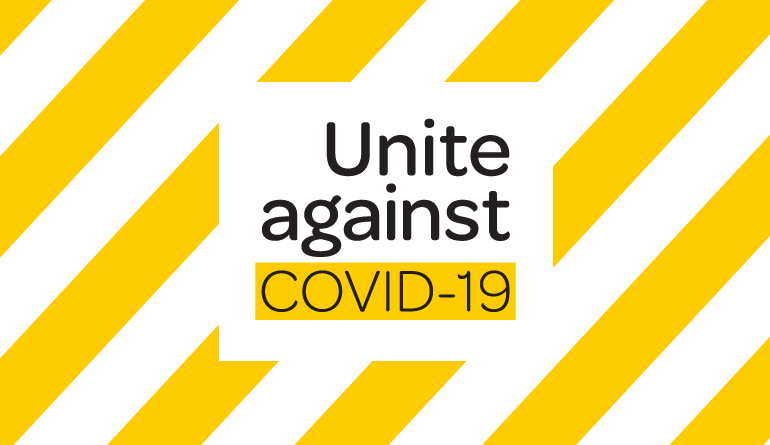ASTM International is providing no-cost public access to important ASTM standards used in the production and testing of personal protective equipment, including face masks, medical gowns, gloves, and hand sanitisers. This is to support manufacturers, test labs, health care professionals and the general public as they respond to the global COVID-19 public health emergency.
Visit www.astm.org/COVID-19(external link) to access these standards.
Registration is required if you are a new user to ASTM's reading room, after which you may access and download no-cost PDFs of standards relevant to the global health pandemic.
New Zealand’s ingenuity and adaptability are apparent in how businesses are transforming in the fight against COVID-19. Online businesses, for example, are switching from promoting restaurant and beauty treatments to selling essential products like hands-free soap dispensers, face masks, and cleaning products. Boutique distilleries are switching production from vodka and gin to hand sanitiser, and 3D printers are being used to manufacture medical face masks.
If you are providing or accessing services, or designing, producing or buying products related to the COVID-19 pandemic, please consult standards. Standards are a tried and tested way of improving quality and safety, enhancing products and services, and meeting industry best practice.
Here are some standards which could help with this work:
Health care services standards
NZS 8134.0-3 – Health and Disability Services standards. These standards are sponsored by the Ministry of Health to view online at no charge. Their application promotes good and safe practice by providers, including infection control, pandemic planning and control, and personal protective equipment (PPE).
Click here for more information on these standards(external link).
Specific infection prevention and control
AS/NZS 1716:2012 - Respiratory protective devices provides guidance for performance and testing criteria for the manufacture of respiratory protective devices. This includes those intended to provide protection against atmospheres containing substances that may be harmful if breathed and atmospheres that may be deficient in oxygen.
AS/NZS 1715:2009 - Selection, use and maintenance of respiratory protective equipment provides guidance for respiratory protection, which includes respiratory hazards, the assessment of associated risks and various methods of control, including the use and maintenance of respiratory protective equipment (RPE) in the workplace.
AS/NZS 4011.1:2014 - Single-use medical examination gloves - Part 1: Specification for gloves made from rubber latex or rubber solution specifies requirements for packaged sterile, or bulked non-sterile, rubber gloves intended for use in medical examinations and diagnostic or therapeutic procedures to protect the patient and the user from cross-contamination. It also covers rubber gloves intended for use in handling contaminated medical materials and gloves with smooth surfaces or with textured surfaces over all or part of the glove.
AS/NZS 4011.2:2014 - Single-use medical examination gloves - Part 2: Specification for gloves made from poly(vinyl chloride) specifies requirements for packaged sterile, or bulked non-sterile, poly(vinyl chloride) gloves intended for use in medical examinations, and diagnostic or therapeutic procedures, to protect the patient and the user from cross-contamination. It also covers poly(vinyl chloride) gloves intended for use in handling contaminated medical materials.
ISO 374-5:2016, Protective gloves against dangerous chemicals and micro-organisms - Part 5: Terminology and performance requirements for micro-organisms risks.
ISO 10993-1:2018, Biological evaluation of medical devices – Part 1: Evaluation and testing within a risk management process.
ISO 13688:2013, Protective clothing – General requirements.
Business continuity management
ISO 22301:2019 - Security and resilience Business continuity management systems – Requirements helps organisations apply international best practice to respond to, and recover from, disruptions. This means reduced costs and less impact on business performance should something go wrong. Additionally, companies with multiple sites or divisions can rely on the same consistent approach throughout the entire organisation.
Other benefits include:
- The ability to reassure clients, suppliers, regulators and other stakeholders that the organisation has sound systems and processes in place for business continuity
- Improved business performance and organisational resilience
- A better understanding of the business through analysis of critical issues and areas of vulnerability
- A clear and detailed view of how an organisation operates, offering valuable insights that are useful for strategic planning, risk management, supply chain management, business transformation and resource management.
ISO 22313 Security and resilience – Business continuity management systems – Guidance on the use of ISO 22301 gives useful guidance and recommendations for applying the requirements of the business continuity management system (BCMS) given in ISO 22301, including supply chain management.
Business risk management
AS/NZS ISO 31000:2009 & ISO 31000:2018 - Risk management - Principles and guidelines is applicable to all organisations, regardless of type, size, activities and location, and covers all types of risk. It is intended for use by anyone who manages risks, not just professional risk managers. (ISO 31000:2018 is available as a free download – see below.)
It helps organisations develop a risk management strategy to identify and mitigate risks and its overarching goal is to develop a risk management culture where employees and stakeholders are aware of the importance of monitoring and managing risk.
Freely available COVID-19-related standards
The International Organization for Standardization (ISO) and International Electrotechnical Commission (IEC) have made a number of relevant standards and their national adoptions accessible for free in order to support global efforts to deal with the effects on business and organisations.

